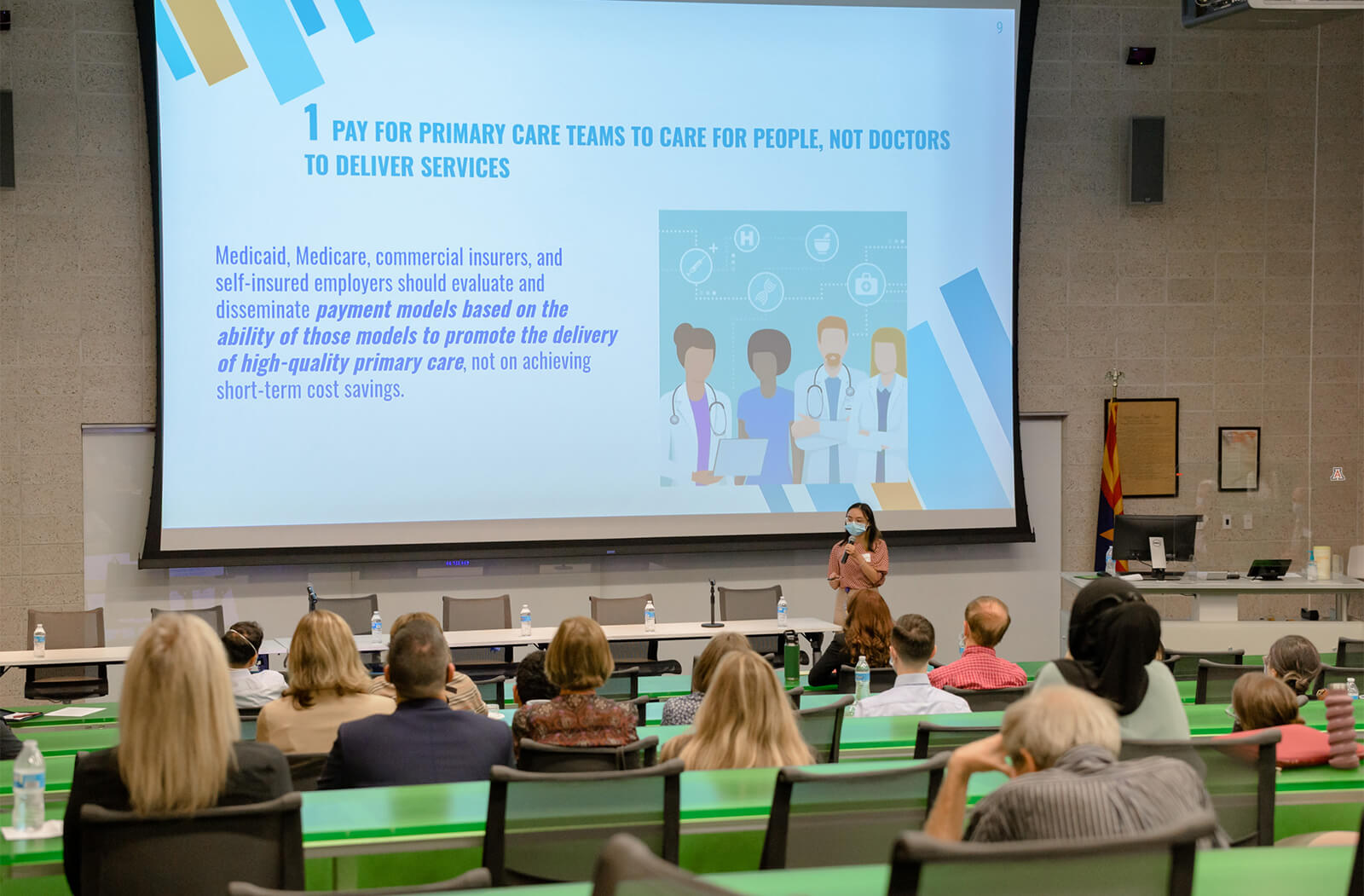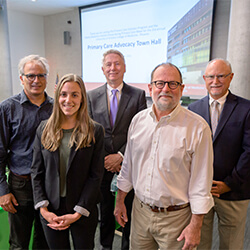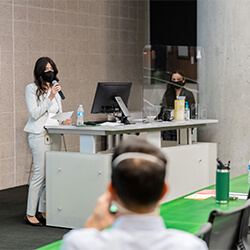
Annual Primary Care Advocacy Town Hall Seeks to Inspire More Medical Students to Pursue Careers in Primary Care

Students, faculty and community members gathered at the Third Annual Primary Care Advocacy Town Hall to spotlight the urgency to train more primary care physicians for Arizona. The town hall was the first in a series of events organized and hosted by medical students in the Primary Care Scholars Certificate of Distinction (COD) program and held from October 4-8, 2021, during the national observance of Primary Care Week.

Humble presented the keynote address on the theme Primary Care and Public Health: Past, Present and Future. His comments centered on the importance of student and physician advocacy, and he encouraged conference participants to remain vigilant, especially on matters related to health care policy. Humble stressed the critical need to improve access to health care for rural and urban communities in Arizona.
“It takes long-term sustained advocacy over time to build a primary care pipeline that brings people like you into the field,” said Humble. “My ask to all of you when you graduate and finish your residencies is to stay engaged with leadership. Get involved with those organizations because they need your advocacy, including your experiences and your stories, to help influence the decisions to build the workforce we really need.”
Primary care physicians are the front line of defense for preventing and managing illness in patients. Without preventive care and early intervention, illnesses can develop into more serious or chronic conditions. The staggering costs for educating physicians, plus the tendency of medical students to specialize in more lucrative fields, have affected the number of primary care physicians available to serve patients. Arizona’s current shortage of primary care physicians (PCPs) is estimated at nearly 600 statewide, and workforce projections by the Robert Graham Center indicate that Arizona will need nearly 2,000 additional PCPs by 2030. Other town hall guests included: Heather Carter, EdD, former State Senator and executive vice president, Greater Phoenix Leadership; Jonathan Cartsonis, MD, director, Rural Health Professionals Program, U of A College of Medicine – Phoenix; and Catherine Ingbar, MD candidate, U of A College of Medicine – Phoenix Class of 2024.
Program Seeks to Fix Arizona Physician Shortage
“The US health care system as we know it is fragmented, expensive and really unsustainable. Providing high quality primary care is the solution to improve health outcomes and lower health care costs,” said Shahrzad Saririan, MD, director of the Primary Care Scholars COD program and the Family, Community, and Preventive Medicine Clerkship, as well as a clinical associate professor at the U of A College of Medicine – Phoenix. Dr. Saririan joined the college as faculty in 2006 and has developed and led the four-year enrichment program for five years.

Saririan noted the mismatch of incomes between medical students who become sub-specialists and those who stick to primary care; and with medical school debt averaging over $200,000, the pay disparity is a huge factor in whether to become a primary care physician.
“We're actually one of the few medical schools nationwide providing this type of program. Also, we’re in the third year of a [Primary Care] scholarship, which covers full tuition costs to help support students interested in committing to primary care,” said Saririan.
Second-year medical student Natalie Alteri served as a student organizer for this year’s activities. She believes that town hall participants gained a deeper appreciation for the interdependence of primary care and public health, especially when trying to improve the quality of health care delivered to patients. Alteri is excited to train to become a primary care physician and to build long term relationships with her patients.
“I really value strong physician-patient relationships because they lay a great foundation for shared decision making, mutual understanding and working toward overall wellness. I have always loved finding ways to engage with and positively impact my local communities, and medical school education and training was something I was excited about; so pursuing primary care is a great intersection of my interests and passions,” said Alteri. She is focused on being an advocate for her patients.
“At the bedside, I am particularly committed to making sure that my patients are heard and supported for more than just their physical concerns. Whenever a patient is comfortable sharing, I want to be aware of other needs that can impact their health like finances, transportation and mental health concerns, so that I can help address these needs and connect them to the appropriate people and resources for additional support,” said Alteri.
About the College
Founded in 2007, the University of Arizona College of Medicine – Phoenix inspires and trains exemplary physicians, scientists and leaders to advance its core missions in education, research, clinical care and service to communities across Arizona. The college’s strength lies in our collaborations and partnerships with clinical affiliates, community organizations and industry sponsors. With our primary affiliate, Banner Health, we are recognized as the premier academic medical center in Phoenix. As an anchor institution of the Phoenix Bioscience Core, the college is home to signature research programs in neurosciences, cardiopulmonary diseases, immunology, informatics and metabolism. These focus areas uniquely position us to drive biomedical research and bolster economic development in the region.
As an urban institution with strong roots in rural and tribal health, the college has graduated more than 1,000 physicians and matriculates 130 students each year. Greater than 60% of matriculating students are from Arizona and many continue training at our GME sponsored residency programs, ultimately pursuing local academic and community-based opportunities. While our traditional four-year program continues to thrive, we will launch our recently approved accelerated three-year medical student curriculum with exclusive focus on primary care. This program is designed to further enhance workforce retention needs across Arizona.
The college has embarked on our strategic plan for 2025 to 2030. Learn more.